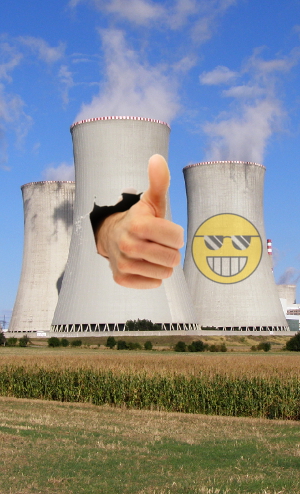Big dump is best nuclear idea, Business says
 Private lobby Business SA says establishing an outback nuclear waste dump would be the best economic move for South Australia, if the Government wants to engage in the nuclear industry.
Private lobby Business SA says establishing an outback nuclear waste dump would be the best economic move for South Australia, if the Government wants to engage in the nuclear industry.
SA’s royal commission into the potential for an expansion of the state's role in the nuclear industry continues this week, and has now heard the suggestions of Business SA's chief executive Nigel McBride.
He says countries including Japan and South Korea would pay to dump their nuclear waste in the state's outback, and it could be extremely lucrative for the state.
McBride says SA Premier Jay Weatherill has received a report commissioned by former Employment and Science Minister Tom Kenyon, which argued for a waste dump to be set up near Woomera.
“We know that there are huge potential financial benefits from being able to provide that service, and it's logical that they've identified somewhere in the Woomera region as a potential site because of course it's very remote,” Mr McBride says.
“There is a huge market out of countries like South Korea who has got a lot of nuclear waste they need to deal with, Japan and other Asian countries and of course countries around the world.”
Mr McBride said the state’s other two options were; enriching of uranium from the states currently-operating uranium mines, and introducing full-scale nuclear power.
But, he says, the state has the most to gain from simply setting up an outback waste dump.
“They are all amazingly interesting options, very exciting options for South Australia's future, but clearly the nuclear waste storage safely in a geological stable remote area is the most promising one at the moment,” he said.
“They [Korea and Taiwan] simply cannot store large amounts of used nuclear fuel safely in their country and so they have a real need.
“We're in the Asia-Pacific, we're an obvious location, we're geologically very sound, we have a huge remote area we can store quite easily.
“Transport options will always be the issue but they can always be dealt with safely as they are in other parts of the world, for example in the US.”








 Print
Print